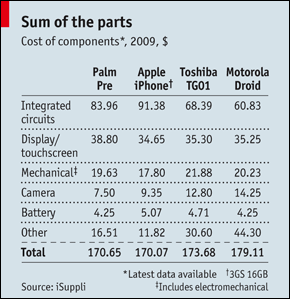There was a good deal of ballyhoo a while back when Amazon announced a deal with some fancy Ivy League schools (like Princeton) to give students free Kindles preloaded with textbooks. Well, guess what? According to The Daily Princetonian, things haven’t gone according to the Bezos script.
Less than two weeks after 50 students received the free Kindle DX e-readers, many of them said they were dissatisfied and uncomfortable with the devices.
On Wednesday, the University revealed that students in three courses — WWS 325: Civil Society and Public Policy, WWS 555A: U.S. Policy and Diplomacy in the Middle East, and CLA 546: Religion and Magic in Ancient Rome — were given a new Kindle DX containing their course readings for the semester. The University had announced last May it was partnering with Amazon.com, founded by Jeff Bezos ’86, to provide students and faculty members with the e-readers as part of a sustainability initiative to conserve paper.
But though they acknowledged some benefits of the new technology, many students and faculty in the three courses said they found the Kindles disappointing and difficult to use.
“I hate to sound like a Luddite, but this technology is a poor excuse of an academic tool,” said Aaron Horvath ’10, a student in Civil Society and Public Policy. “It’s clunky, slow and a real pain to operate.”
Horvath said that using the Kindle has required completely changing the way he completes his coursework.
“Much of my learning comes from a physical interaction with the text: bookmarks, highlights, page-tearing, sticky notes and other marks representing the importance of certain passages — not to mention margin notes, where most of my paper ideas come from and interaction with the material occurs,” he explained. “All these things have been lost, and if not lost they’re too slow to keep up with my thinking, and the ‘features’ have been rendered useless.”
One professor, Stan Katz, who teaches Horvath’s class, said he is interested in whether he “can teach as effectively in using this as in using books and E-Reserve material and in whether students can use this effectively,” adding that “the only way to find out is to try it.” One of Katz’ main concerns is whether students can do close reading of the texts with the new device.
“I require a very close reading of texts. I encourage students to mark up texts, and … I expect them to underline and to highlight texts,” Katz explained. “The question is whether you can do them as effectively with a Kindle as with paper.”
eReaders are a classic case of a technological solution looking for a problem. They are useful for some purposes — like avoiding RyanAir baggage fees. But they’re not a general-purpose solution to every reading need. The most interesting thing about the Princeton experience is that it rather punctures the widespread assumption that eReaders would at least be good for disrupting the expensive textbook market.







